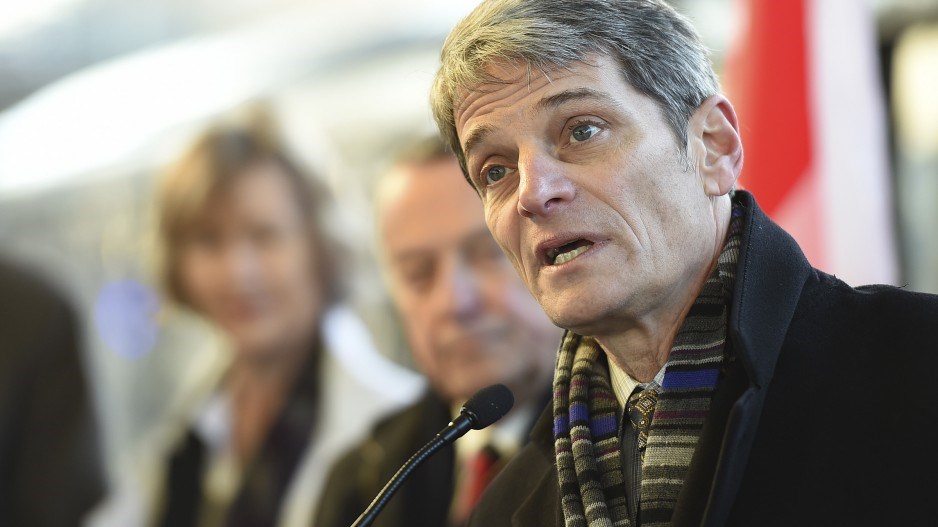TransLink will be looking at a number of ways to boost capacity on Metro Vancouver’s transit system – and may also be focusing more attention on programs to help local companies with employees’ commutes – in an effort to support the regional economy.
That was the message from TransLink CEO Kevin Desmond at a Greater Vancouver Board of Trade meeting on Tuesday, in which the top transit official in the region touted a number of new items including the likelihood that double-decker buses will soon frequent local thoroughfares.
“In addition to adding more buses and service, it’s also about how we can improve [the transit system’s] capacity,” Desmond said. “We will be demoing some double-decker buses here in just a few weeks, and I have every expectation that the demo will go very well… I think it’s a no-brainer we are going to start procuring double-decker buses.”
In addition, Desmond said 80 new SkyTrain cars – equivalent to 12 train sets for the Canada Line, or eight for the Expo/Millennium Lines – are coming into the system between late 2018 and 2019. New Seabuses are also under construction and are slated for delivery in the next two years.
“We should end this year with 400 million [passenger] boardings… and of course, there’s a double-edged sword to all of that,” Desmond said. “As successful as we’ve been so far in generating that ridership and helping to support demand, the system is crowded, and it’s going to remain crowded. Improving service attracts more riders, and as we attract more riders, we have to figure out ways to continue to grow the system.”
Statistics show the degree of growth - and the relative increase on demand - of Metro Vancouver’s public transit system. Ridership rose 4.5% in 2016, and numbers through September this year shows a 6.2% increase. Currently, commuters make more than 150,000 journeys through the Commercial-Broadway station each day. In August, TransLink’s Compass Card program, which launched almost two years ago after a number of delays, hit one billion taps by passengers using the system.
“We’re experiencing – unlike virtually every metropolitan region in all of North America – a surge in ridership,” Desmond said, attributing the growth to a strong local economy and new services like the Evergreen extension on the SkyTrain system. “We hit the wave at the right time; as demand was coming back and people were coming back to the system, we were able to start fuelling the demand.”
Desmond also said the group is making progress on TransLink’s 10-year plan, which includes the much-discussed Millennium Line extension on West Broadway. According to Desmond, if all discussions progress as planned, TransLink should be able to get the procurement for the six-kilometre, six-station extension, from VCC-Clark to Arbutus Street, next year, with completion slated for 2025.
Meanwhile, a light-rail system in Surrey could also receive procurement next year, with a 10.5-kilometre “L-line” connecting Guildford Exchange to Newton slated for operation in 2024. (An extension to Langley is also planned, although funding still has to be assembled for that project, Desmond said.)
“What we are trying to do at TransLink … is preserving, if not improving, the quality of life in this region moving forward,” he said. “How do we preserve the economy and allowing it to grow? Connecting jobs and housing is such a big issue; there’s such a huge intersection between transit and housing. We are aware of that, and we are on it.”
Desmond also noted, however, that TransLink will look to maintain the efficiency on current systems such as Expo Line’s 31-year-old tracks in addition to service and capacity expansions to ensure transit plays its proper role of moving people around the region quickly, for the benefit of both the economy and society at large.
“Fortunately, those disruptions don’t happen very often at all. When they happen, particularly during rush-hour periods, it is pretty impactful… We don’t want to end up like New York City or Washington, D.C., where not enough money and attention was put into keeping the exiting system operational, only to find crisis after the fact. That means rail replacements, switch replacements and electrical replacements. That’s the type of work we need to do.”




